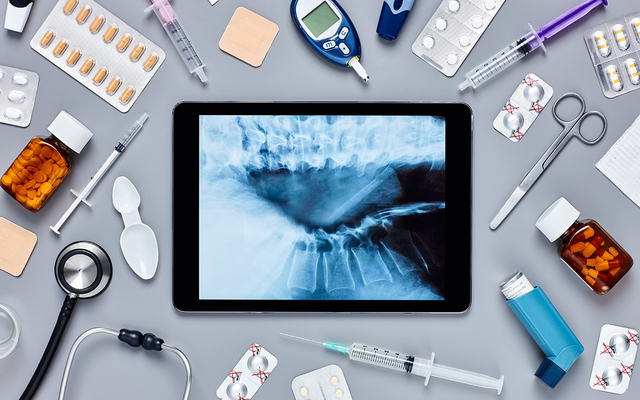Rationalize Taxes & Duties in Budget 2019-20: MTaI
June 10, 2019 | Monday | News
Association submits budget recommendations to Finance Ministry

Medical Technology Association of India (MTaI), which represents leading research-based medical technology companies with large footprint in manufacturing, R&D and training in India have said Union Budget 2019-20 should reduce taxes and duties to enable continuous supply of quality medical devices in the country.
The current regulatory regime mandates absolute price ceiling for medical devices like orthopaedic implants and stents, and allows a limited 10% annual price increase for other notified products. This is irrespective of cost challenges and exchange rate increases faced by companies. Approximately, 70% of medical devices are imported into India to meet the rising demand for quality healthcare.
Sanjay Bhutani, Director, MTaI said, “India is witnessing a spurt in demand for quality healthcare, and our member companies are committed to providing the latest technology in the Indian market. Since the government is trying to reduce the cost of healthcare, it must do so without compromising the ability of the industry to bring innovation to the Indian patients, this also requires streamlining of the tax structure and rationalization of duty regime with immediate effect.”
The following issues need immediate measures in the budget this year:
High Custom Duties: High custom duties have adversely impacted the costs of products in India which contradicts the government’s efforts to provide low-cost healthcare available to masses through the Ayushman Bharat program (PMJAY). We seek reduction of custom duties to 2.5% including all surcharges.
Additionally, since the custom duty regime on most medical devices in neighbouring countries of Nepal, Myanmar, Sri-Lanka, and Bhutan is lower than in India, the duty differential could lead to smuggling of low-bulk-high-value devices. The result will not only be loss of revenue for the government but also the patient will be beset with products which are not backed by adequate legal and service guarantees.
Another point to note is that China, which has near self-sufficiency in segments like consumables, has reduced custom duties from 4% to 3.3% recently to avoid the problem of smuggling and to inject competition in the sector.
Customs Duty & GST on Spare Parts: Custom duty on spare parts of the medical equipment are currently charged at a higher rate than the equipment itself. For example Heart Lung Machine attracts basic custom duty of 7.5% & GST of 12% whereas its spare parts like Roller Pump attracts basic customs duty of 10% and GST of 18%. Similarly, GST on Contact Lenses is 12%, whereas the Contact Lens Solution which is the essential part of using Contact Lenses attract 18% GST. We recommend that the same customs duty and GST should be charged on spare parts and medical equipment.
Tax Holiday for R&D: Tax holiday should be provided to medical device R&D centres under the Transfer Pricing Act to boost investment in setting up in-house R&D capabilities. We also seek tax incentives for the industry for developing global patents from India and tax deduction on income made by individuals or a company for rewards earned on patent development or patent licensing.
Minimum Alternate Tax: We urge the government to reduce Minimum Alternative Tax (MAT) rate to 15% from the present effective rate of 21.34% (including surcharge and education Cess). The high rate of MAT has cast substantial burden on companies which are already affected by various external factors. Conceptually, MAT is a minimum and an alternate tax and hence it should not be at a rate which is more than 50% of the basic corporate tax rate.
GST on Trials and Samples: GST should not be charged on trials and samples as doctors need samples/free trials/demos in order to satisfy themselves on efficacy of product in best interest of patients. Cost of trials are already built into cost structures and is a business expense.
GST on Expiries: Medical device suppliers take back product expiries as per best business practice, and in order to ensure product availability at all times. However, the input GST needs to be reversed on such expiries which causes undue loss to the Industry, raising their cost of operations. We recommend that for market expiry replacements, the GST credit be available to suppliers as normal supplies. Cost of expiries are already built into cost structures and hence is a business expense and not allowing input credit contradicts basic edifice of GST.
Time-limit of 6 months on Sale on Approval (SOA) transaction in GST: Hospitals require device suppliers to keep critical devices in all sizes, shapes, sizes as the actual need is known only at the last minute at the time of surgery. Hence complying with the 6 months norm for charge of GST is causing a lot of distress for device suppliers and hospitals. A 24 months period will allow device suppliers to keep entire variants without issue of GST exposure on unconsumed items, while also not impacting critical patient care.
GST on Healthcare Services: Healthcare services are currently exempt from GST. As a result, hospitals are not able to claim GST input. This results in higher cost of treatment for the patient. Once zero rated, Hospitals will be able to avail GST credit on inputs, leading to lower healthcare services cost.
Expenditure on CSR: Expenditure on CSR is being disallowed in tax computation. CSR Expenditure has been mandated under law and therefore should be claimable as tax deductible expenditure.
Tax Incentives on Exports: Currently, there are no tax benefits on export income. Export being a growth engine for the economy it is important that efforts should be made to make it competitive in the international market. India’s export performance in last 2-3 years has been on a decline which impacts the balance of trade. Introduction of export incentives related to direct tax exemption for the export profits would attract more investments to sectors like medical devices.









